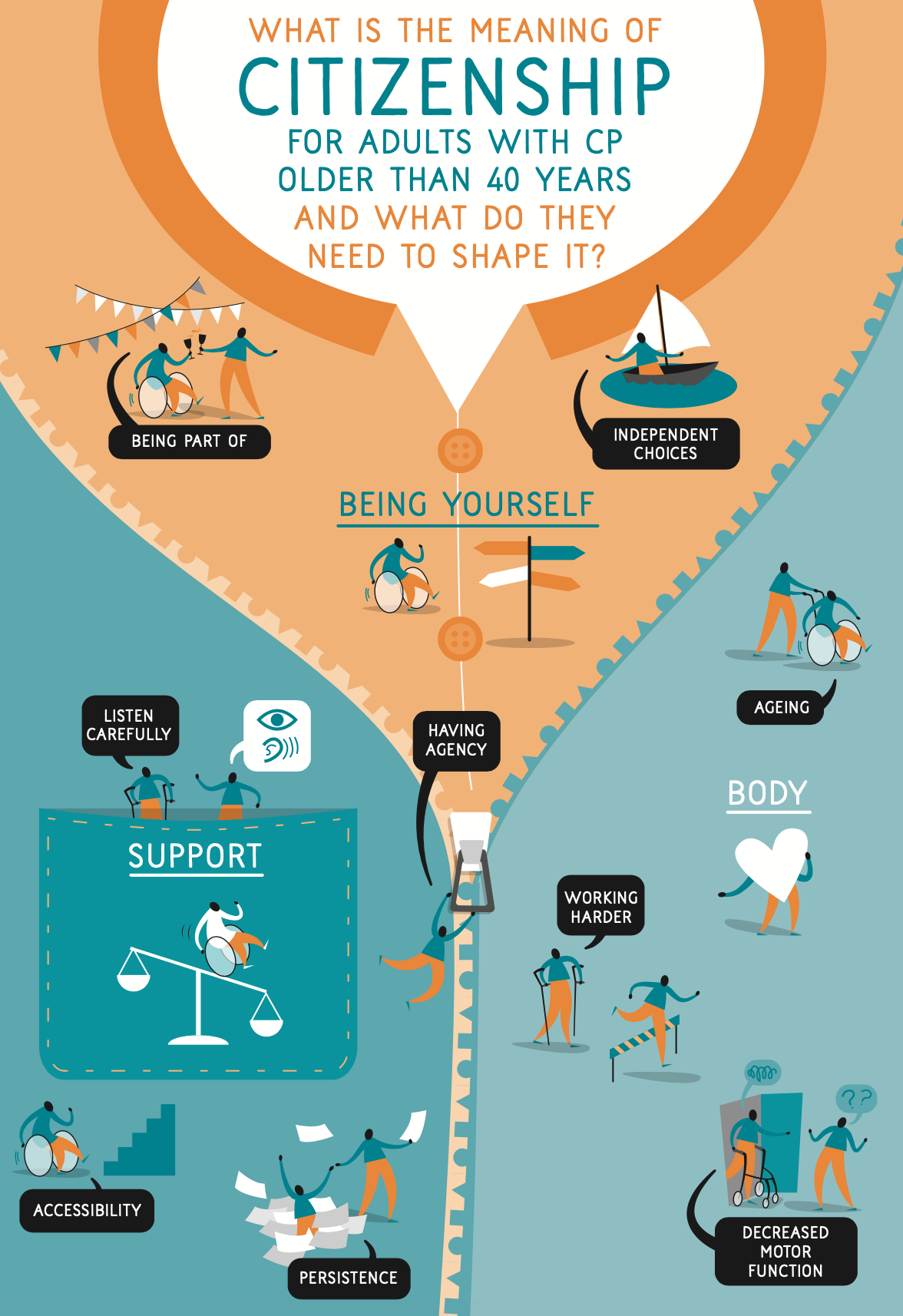Results
Nineteen adults participated ((mean age (SD) 57.8 (9.4) years (range 44-79), six men)). From the analysis four themes emerged: (a) Meanings of citizenship; (b) Citizenship: Facilitator and barriers; (c) Paradoxes of support and participation; and (d) Future. Furthermore, next to the ability to participate in society without restrictions, sense of belonging was considered an important aspect of ‘meanings of citizenship’. To support physical activity and dealing with the impact of aging with CP on daily life, the physiotherapist was perceived to be an important health professional. Complex regulations regarding healthcare and support services and aging negatively affected citizenship.
Middle-aged and older adults with CP view citizenship as the ability to participate in society and as belonging to society. To optimize their citizenship, person-centered rehabilitation and support services must recognize and support the challenges and individual needs. Simplification of complex regulations of healthcare and services can further add to this optimization.
Products/publications
- Aging with cerebral palsy: a photovoice study into citizenship
Article in magazine Frontiers in Neurology, August 2021 -
'I want to be a full citizen' - Aging with cerebral palsy and citizenship
View the short film here - What is the meaning of citizenship for adults with CP?
View the complete infographic here
